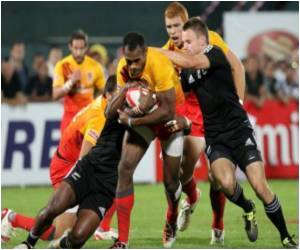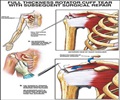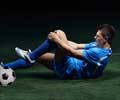
The contact sport athletes experienced an average of 469 head impacts during the season. Athletes were not included in the study if they were diagnosed with a concussion during the season.
All of the athletes took tests of thinking and memory skills before and after the season. A total of 45 contact sport athletes and 55 non-contact sport athletes from one of the schools also took an additional set of tests of concentration, working memory and other skills.
"The good news is that overall there were few differences in the test results between the athletes in contact sports and the athletes in non-contact sports," said study author Thomas W. McAllister, MD, of The Geisel School of Medicine at Dartmouth in Lebanon, N.H. "But we did find that a higher percentage of the contact sport athletes had lower scores than would have been predicted after the season on a measure of new learning than the non-contact sport athletes."
A total of 22 percent of the contact sport athletes performed worse than expected on the test of new learning, compared to four percent of the non-contact sport athletes.
McAllister noted that the study did not find differences in test results between the two groups of athletes at the beginning of the season, suggesting that the cumulative head impacts that contact athletes had incurred over many previous seasons did not result in reduced thinking and memory skills in the overall group.
Advertisement
McAllister said it''s possible that some people may be genetically more sensitive to head impacts.
Advertisement
To learn more about concussion, visit http://www.aan.com/patients.
The American Academy of Neurology, an association of more than 25,000 neurologists and neuroscience professionals, is dedicated to promoting the highest quality patient-centered neurologic care. A neurologist is a doctor with specialized training in diagnosing, treating and managing disorders of the brain and nervous system such as Alzheimer''s disease, stroke, migraine, multiple sclerosis, brain injury, Parkinson''s disease and epilepsy.
For more information about the American Academy of Neurology, visit http://www.aan.com or find us on Facebook, Twitter, Google+ and YouTube.
Source-Newswise










